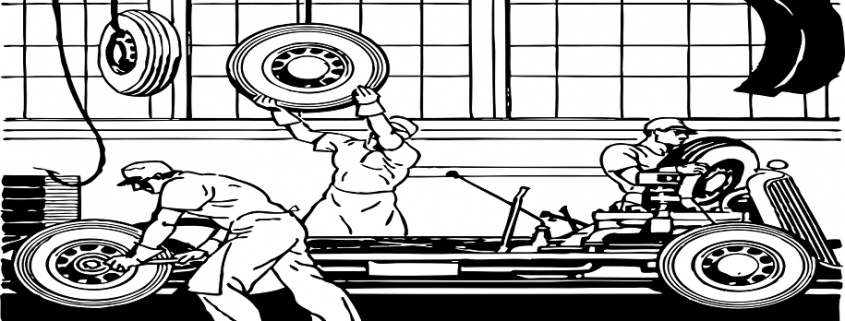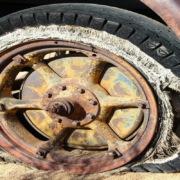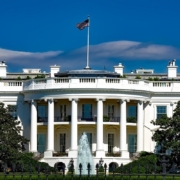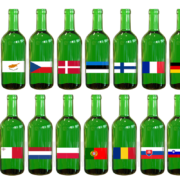Does it make sense to offer foreign investors subsidies?
Image by Clker-Free-Vector-Images from Pixabay
Subsidies are a standard feature of investment promotion, but do they reveal more about a country’s business environment than intended?
The news that Volkswagen has delayed its decision to invest in a new factory in Turkey has raised hopes in South East European countries that they may be the new destination of the German automaker’s investment. Bulgaria, Croatia, Romania and Serbia all hope to convince VW to abandon Turkey and come to them.
Investors look at numerous indicators and ranking lists when deciding where to invest
Soon after that news, the World Bank Doing Business 2020 rankings were released. According to that list, far ahead of everyone in the region was North Macedonia in 17th position. Slovenia, Serbia, Montenegro, Croatia and Hungary, Romania, Bulgaria, Albania and Bosnia Herzegovina all came in behind North Macedonia. During summer, the World Economic Forum (WEF) released its Global Competitiveness Index where the rankings were rather different. Here Slovenia was judged the most competitive, followed by Romania, Bulgaria, Hungary, Croatia, Serbia and Montenegro one after another, with Bosnia Herzegovina bringing up the rear (North Macedonia is ahead of BiH on this list, but behind Montenegro and Albania). In essence, the further west a country is and the sooner it entered the EU, the more competitive its economy.
(At least) one other ranking list plays an important role in shaping investors’ decisions where to locate and that is Transparency International’s Perceptions of Corruption Index. The 2018 list ranks countries in the region in a similar way to the WEF. Slovenia is perceived the least corrupt, followed by Croatia, Hungary, Montenegro, Serbia and Bosnia Herzegovina. North Macedonia, which according to the World Bank Doing Business ranking is far ahead of the rest of the region, is perceived as being more corrupt than all the countries mentioned above except for Albania. This is important, because the best laws and procedures risk becoming meaningless if too many of your competitors simply manage to operate without heeding them. The point is that potential investors look at many parameters when making investment decisions.
A slightly more detailed look at the various ranking lists can be instructive is seeing where weaknesses in the business environment may persist. Both the Doing Business and WEF Global Competitiveness Index point to the legal and regulatory systems as areas where each of the four nations apparently in contention for the VW investment need to focus.
Legal and regulatory environments need more attention
Looking at the Global Competitiveness Index, Croatia scores worst for judicial independence, the burden of government regulations and the efficiency of the regulatory framework for resolving disputes, followed by Serbia, Bulgaria and Romania.
The World Bank Doing Business 2020 scores for resolving insolvency rank Serbia best followed by Croatia, Romania and Bulgaria; the four countries find themselves in a narrow range of 41-61 out of 190 countries by this measure. Romania and Croatia (19th and 27th respectively) are best at enforcing contracts, with Bulgaria (42nd) and Serbia (65th).
Logic dictates that a stable, predictable, fair yet flexible environment attracts investments. The private sector is more than capable of dealing with business risk. It is simply that much easier when it does not have to worry about frequent rule changes and tendentious implementation of laws and regulations.
Understanding the investor’s goals
So should all four of these countries simply give up on VW? No, but assuming the Turkey venture does in the end come to nothing, being realistic is a good first step. The World Bank Doing Business survey puts Serbia in first place, Transparency International’s Perceptions of Corruption index ranks Croatia least corrupt, while the World Economic Forum judges Bulgaria the most competitive of the four nations apparently in the running for VW’s latest European factory. There’s something to cling on to for everyone there.
The key to attracting any investment is determining what the investor’s main goals are. If the size of the domestic market is the main factor, Romania, with a population greater than that of the other three countries combined, has a clear advantage. Romania can also point to the largest pool of labour – labour shortages are a stylised fact of each of these four economies, but with a tradition in constructing vehicles Romania can also point to possessing the necessary experience.
The cost of labour is another consideration – while Croatia has a relatively expensive labour force it can point to the link between wages and productivity. Higher wages are associated, in general, with greater productivity and in production that translates to a better-quality final product with less faults (and thus lower final cost). As driverless cars and automation are areas of development in this sector, that country which can best link its domestic ICT sector to any initiative for cooperation on the development of artificial intelligence and similar activities may prove of particular interest. Any serious foreign investor, such as VW, will certainly have a list of conditions it would like to see realised when negotiating a potential investment, but that does not preclude a potential host nation from suggesting beneficial cooperation initiatives to enhance its attractiveness.
Does the focus on subsidies belie a lack of confidence?
One other factor to consider is subsidies. Here, as a non-EU member Serbia has more room for manoeuvre. One thing we should consider in this situation is whether, as taxpayers we think it is in order to subsidise a company whose balance sheet comfortably exceeds the combined GDPs of Romania, Bulgaria, Croatia and Serbia? Yet subsidies have been touted by Serbia and Bulgaria as selling points. Namely, if the level of subsidies provided is the key to getting an investment, how genuinely attractive is a country for investment? I do not think, by the way, that countries should not assist investors. For example, making disused state-owned land available and ensuring access to necessary services makes perfect sense. Yet, when financial outlays to which taxpayers are beholden are extensive, is that not an admission, however tacit, of weakness?
Finally, for Bulgaria, Croatia and Romania, the issue of entry into Schengen and adoption of the euro may play an important role. For Croatia at least, the European Commission has concluded the country is ready to join the Schengen free-movement zone and probably in 2020 the country will be ERM II, the waiting room for full euro adoption. That represents two credible arguments that the cost of doing business will be permanently and visibly lower by the time any factory begins producing vehicles.
The different ranking lists highlight various aspects of the business environment; hence the variation in rankings. The fact subsidies are mentioned as swing factors suggests countries are not convinced their business environments are as good as some indicators suggest. What is evident, is that the legal and business environments of these countries all exhibit degrees of weakness which impact their attractiveness for investment.
After all, one of the main reasons for joining (and attempting to join) the EU was/is the awareness that without the structure, experience, credibility and resources the EU beings, none of these countries would have likely made any meaningful progress in addressing structural impediments in their economies in an acceptable timeframe. Offering subsidies is one aspect of attracting investment, yet consistently working to improve the business environment, admittedly the more difficult and time consuming route, is likelier to deliver results over time.








